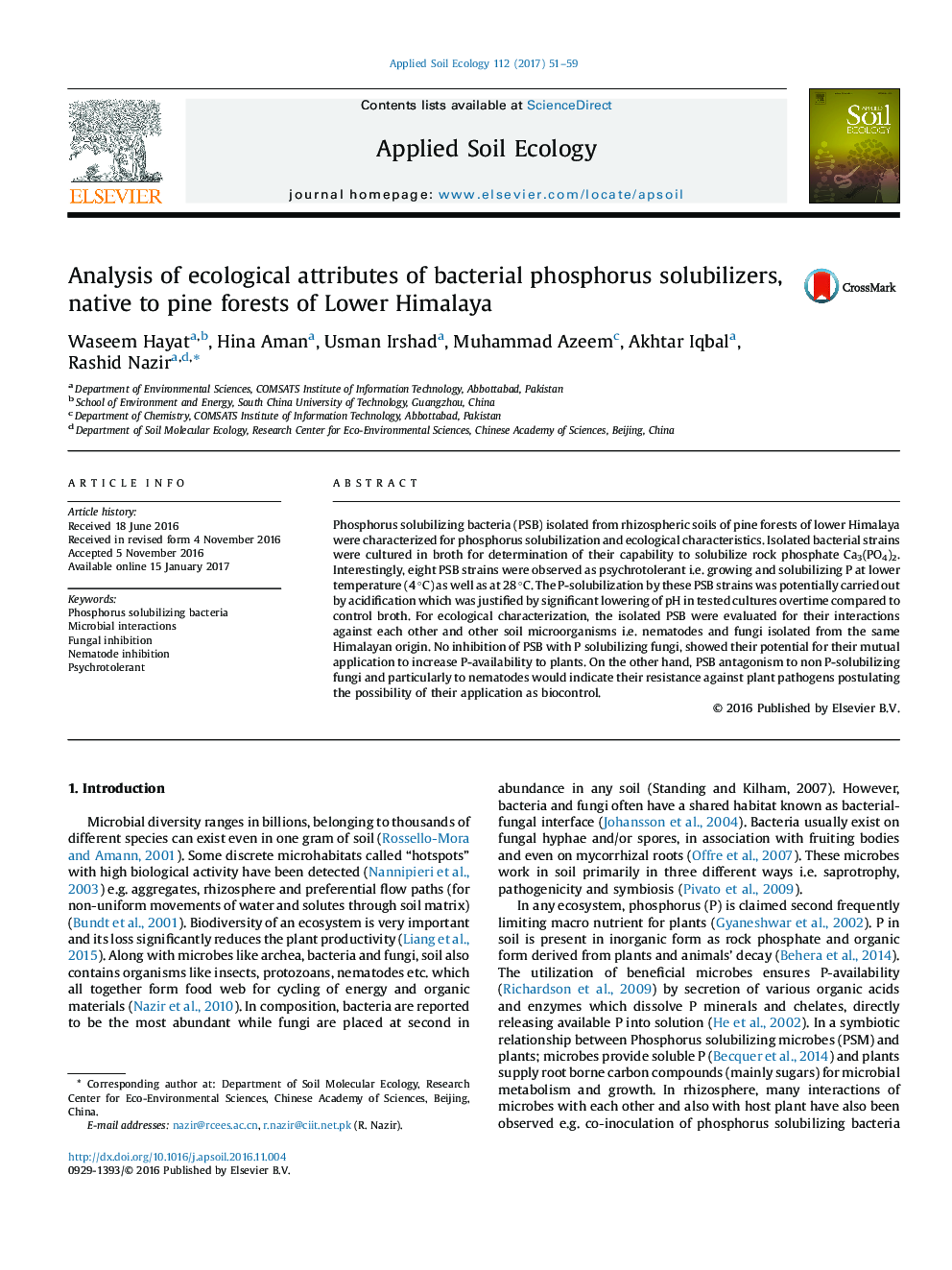| Article ID | Journal | Published Year | Pages | File Type |
|---|---|---|---|---|
| 5742758 | Applied Soil Ecology | 2017 | 9 Pages |
â¢Himalayan PSB are capable of efficiently solubilizing P from TCP via lowering pH.â¢Some of Himalayan PSB solubilize P at ambient as well as at cold temperature.â¢Majority of PSB does not inhibit mycelial growth of P-solubilizing fungi.â¢Some of the Himalayan PSB can potentially inhibit nematode grazing.â¢These PSB are hypothesized to be competent rhizosphere inhabitants of pine forests.
Phosphorus solubilizing bacteria (PSB) isolated from rhizospheric soils of pine forests of lower Himalaya were characterized for phosphorus solubilization and ecological characteristics. Isolated bacterial strains were cultured in broth for determination of their capability to solubilize rock phosphate Ca3(PO4)2. Interestingly, eight PSB strains were observed as psychrotolerant i.e. growing and solubilizing P at lower temperature (4 °C) as well as at 28 °C. The P-solubilization by these PSB strains was potentially carried out by acidification which was justified by significant lowering of pH in tested cultures overtime compared to control broth. For ecological characterization, the isolated PSB were evaluated for their interactions against each other and other soil microorganisms i.e. nematodes and fungi isolated from the same Himalayan origin. No inhibition of PSB with P solubilizing fungi, showed their potential for their mutual application to increase P-availability to plants. On the other hand, PSB antagonism to non P-solubilizing fungi and particularly to nematodes would indicate their resistance against plant pathogens postulating the possibility of their application as biocontrol.
